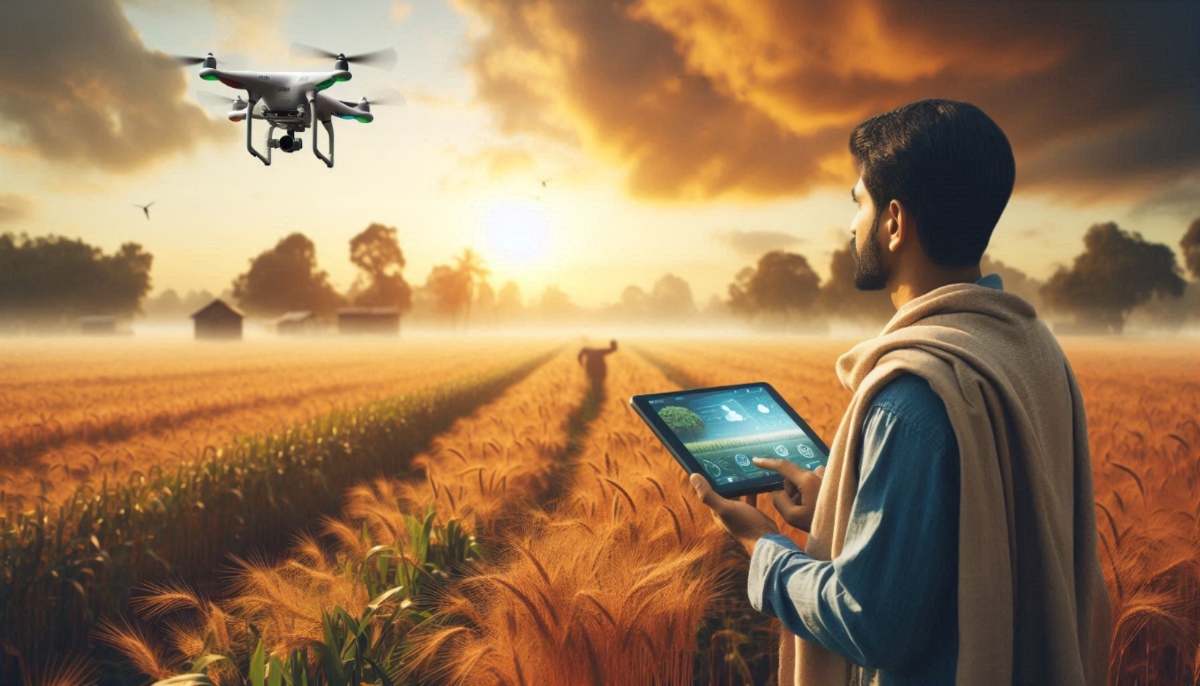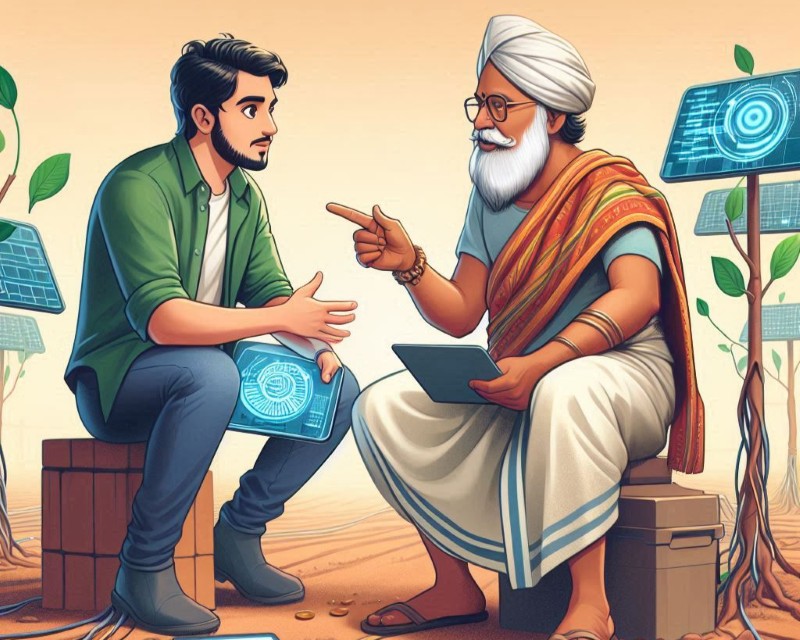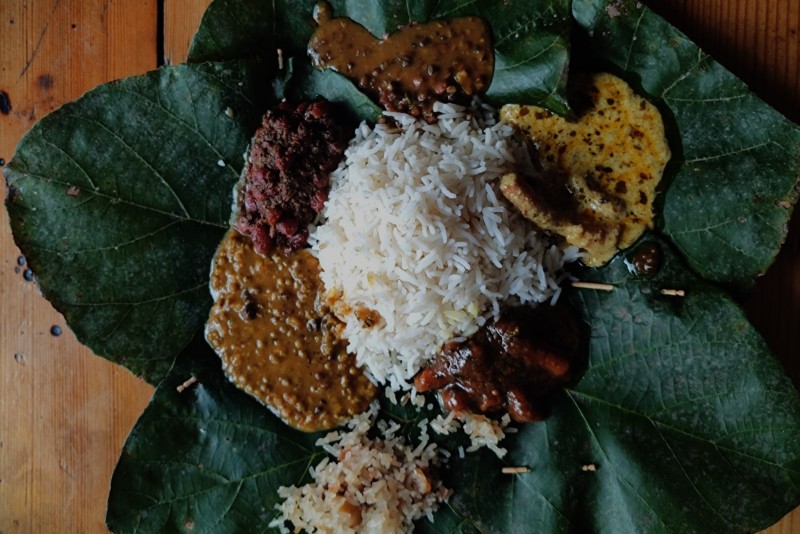 Loading...
Loading...
 Loading...
Loading...

Overview: The article proposes an inclusive approach to acknowledge and give judicious credit to the farmers, the primary stakeholders of the food chain. It also talks about how the APMC Mandis can transform and why it would be a better option to minimize rather than bridge the rural- urban gap. A small approach of intervention is scratched upon to assure that it is an implementable idea.
The article proposes an inclusive approach to acknowledge and give judicious credit to the farmers, the primary stakeholders of the food chain. It also talks about how the APMC Mandis can transform and why it would be a better option to minimize rather than bridge the rural- urban gap. A small approach of intervention is scratched upon to assure that it is an implementable idea.
Despite being the primary stakeholders of the Food Systems Chain, farmers in India have known a life of perpetual struggle. From managing farms, to repayment of loans, handling the weather conditions and intermittent calamities, investment in purchase of seeds, pesticides and other essentials such as water, electricity and low price returns for the produce in the market are a few of the challenges.
On the other hand, consideration of commercial urban farming by urban youth as an entrepreneurial opportunity and the rise of online services and doorstep deliveries of fresh fruits and vegetables show a significant level of shift in the preference of urban communities from picking fruits and vegetables at APMC Mandi Stalls to doorstep delivery of fresh and organic produce.
It will be a year in September 2021 that India has been witnessing the unfaltering spirit of farmers to combat something that is predicted to potentially pose challenges- New Farm Bills 2020. The Prime Minister claims that the Farm Bills are in the benefit of the farmers. However, the idea of trading their produce with the big businesses brings a feeling of vulnerability rather than empowerment in the mind of the farmers. Somebody needs to address that. The reasons are valid- the rural- urban gap.
The way in which the people in rural India function, their livelihood needs and the relevant skill- set for achieving those differ largely than how things function in urban India. The presence of middlemen somewhere acted as a bridge for the trade, however, also for the divide being maintained.
The Indian families involved in farming as an ancestral source of livelihood have also acquired the required skills through teaching and training lineally from their elders. However, they could very rarely benefit from the offerings of globalization- may it be research, innovation, modern techniques or the benefits of technological advancement.
The rural and the urban India seems such a big divide at times; one doesn't seem to possess the survival skills required in the other realm.
Nirmala Sitharaman, the Finance Minister of India, has been quoted numerous times proposing the dismantling of APMC Mandi System, arguing that this is not serving the purpose of finding better price points to the farmers for their produce.
What seems surprising is her approach- dismantling an entire system if it has some difficulties. What about the purposes it does serve? What about the difficulties it would pose on being dismantled- which would be more numerous than what are being faced now?
One needs to understand that policy change is not an answer to every problem. There are different approaches. For instance, in this case, one of the solutions for getting the farmers a justifiable price for their produce is actually minimizing the urban- rural gap, than bridging it with some mediator; it would be appropriate that the farmers be aware of their rights and get what they deserve for their efforts.
There are numerous areas in which the gap needs to be addressed. A few of those being:
1) Taking research to the countryside: Sharing the advancements in techniques and technologies developed through research, so that the rural farmers are able to save on and/or deal with lack of resources (land, water, etc.) and energy (water, electricity, etc.), and increase productivity.
Addressing the Financial Gap: According to the NSSO Survey, 2013 the average monthly income2) of farmers in India was derived to be Rs. 6426 post which it didn't conduct any survey. According to a survey report by NABARD in 2016-17, it was found out to be raised to Rs. 8931. According to the NABARD survey, despite owning lands, the farmers couldn't provide for their families depending solely on the produce procured. 40% of the farm owners depended on two sources of income and 50% on more than two, including wage labour and livestock rearing. Considering the amount of labour, energy and financial investment they put in, this would be considered an unjustifiable treatment towards the farmers.
3) Technical support and skill training: Surviving a market outside Mandis demands a very different level of skill- set.
3A) Techniques such as vertical farming and hydroponics to overcome the challenges of lack of soil fertility or even a small land area owned for farming can be overcome by such modern techniques.
3B) Demands and Services: Market which spans across online services, doorstep delivery, packaging and presentation, fresh and organic produce, where along with health and hygiene, attractiveness, ease of access and timely delivery is also a preference, if not a priority; services matter in the urban world than just the product.
3C) Market Research: Entrepreneurs who produce for contract clients, or seek clients for their produce rather than just consumers, plan their produce based on their market research findings of their existent and potential clients' demands.
3D) Marketing Skills and Strategies: There are a range of skills that the farmers need to build to sell their produce to hotels, restaurants and urban localities.
Technological Ownership: Owning and learning to handle new affordable technology (or technology made provisional by the government) than being dependent on loans and surviving debts would be real empowerment.
A policy change won't bring about a sudden change of this scale. An involvement of strong support systems might; and it will take time… a lot of time. Let's accept, change doesn't happen overnight. Let's give it the time it takes.
And, more importantly, what would be necessary would be developing an attitude of acceptance and inclusion of the rural and urban towards each other. This can be achieved by a perspective shift regarding each other and readiness to see and appreciate each others' worlds. Otherwise, it would be the same as believing that dismantling is the only option, and there is nothing right with the system. We would then be moving towards dismantling the entire traditional farming in India.
And believe me, this is not a utopian idea. It is achievable. A few things to try would be:
A) Exposure: Exposure to each other's cultures and their utility and importance so that both are ready to learn from each other.
B) Conditioning: Loosening the conditioning and challenging perceptions about each other and seeing each other in different light.
C) Acknowledging each others' struggles and attempts at growth along with developing a readiness of sharing each other's learning and wisdom, tools and techniques.
D) Researching and documenting the methods and techniques still prevalent in rural India: With ancestral techniques is carried wisdom of their culture, which can be a new learning for the urban endeavours. Let's accept, there is a lot to learn from them too. An approach of interaction and mutual learning rather than a trainee- trainer approach would create space for mutual growth rather than mere technological advancement.
New entrepreneurial advancements are bringing about a shift in the produce, its quality (keeping health in focus and organic produce its priority) and in the provided services. This may pose a big challenge for the APMC Mandis and consequently the traditional farmers. Transformation leads to sustenance. However, transformation may not necessarily demand dismantling.
Let's think it over. APMCs could be transformed into better versions of themselves- hygienic, healthy, clean, organized, attractive, and most importantly, affordable- for both the farmers and the consumers. After all, there are people who still prefer handpicked vegetables and fruits. The system means something.
Let's work towards building a more inclusive world, where the urban- rural gap doesn't become a divide, where provisions are equally available for both the urban and rural areas and everyone's needs are met.
You may also like:




Subscribe:
Disclaimer: